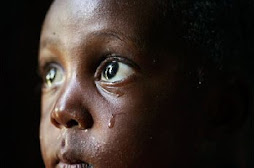by Norest Muzvaba
JOHANNESBURG - A women's rights group on Wednesday called on Zimbabwe's power-sharing government to bring to justice people who committed human rights violations including sexual abuse against women during the run-up to a controversial second round presidential ballot won by President Robert Mugabe last June.
The Women Coalition of Zimbabwe (WCZ) also urged Southern African Development Community (SADC) leaders to pressure the unity government of Mugabe and Prime Minister Morgan Tsvangirai to uphold a regional protocol on gender.
"Any transitional process will not be effective unless it addresses the issues raised by those affected. Attempts of national healing and reconciliation without (justice) provide a short-lived remedy to conflict," said WCZ chairwoman Emilia Muchawa, during the launch in Johannesburg of a documentary on violence against women in Zimbabwe.
The documentary titled, "Hear Us - Zimbabwean Women Affected by Political Violence Speak Out", and an accompanying report titled, "Putting it Right: Addressing Human Rights Violations Against Zimbabwean Women", give detailed accounts and footage of how women were beaten, tortured and raped during the violence that engulfed Zimbabwe before the June vote.
Women's groups estimate that more than 2000 women may have been raped between May and June last year.In one of the most touching moments captured in the documentary a woman identified only as Memory recounts how she was gang raped by militia from
Mugabe's ZANU PF party at torture camp in rural Zimbabwe.
She recalls: "When I arrived at the base, they removed all my clothes and I was raped by three men, one after the other," Memory says in the documentary. She added that after the rape she attempted to file a report with the police who however declined to accept her statement.
"We are not dealing with political violence cases. The time will come when we will deal with them," Memory recollects one police officer telling her.The documentary was produced by the WCZ working in collaboration with the Research and Advocacy Unit (RAU).
RAU is a non-governmental organisation based in Harare pushing for setting up of a truth, justice and reconciliation commission and working on providing specialist assistance in research and advocacy in the field of human rights, democracy and governance.
Zimbabwe witnessed some of its worst ever political violence during the run up to the June vote that was being held after Mugabe was defeated by then opposition leader Tsvangirai in an earlier vote the previous March. But the opposition leader failed to achieve the margin required to take power and avoid a second round run-off vote.
Tsvangirai pulled out of the June ballot citing state-sponsored attacks against his supporters and in the process, leaving Mugabe to win as sole candidate.
But the election was universally condemned, with African countries that had refrained from criticising Mugabe in the past also denouncing the
violence-marred election - a situation that forced Zimbabwean leader to open negotiations to share power with Tsvangirai and Arthur Mutambara, who heads
a smaller opposition party.
The WCZ said it welcomed the power-sharing agreement or global political agreement (GPA) signed last September because the document acknowledges equality between men and women and recognises women's role in nation building.
But the group urged the SADC, which brokered the GPA, to pressure the Harare vernment to implement the power-sharing agreement in full including clauses underpinning women's rights.
Regional governments should also lean on Harare to incorporate the SADC Protocol on Gender and Development into Zimbabwean law, according to the WCZ.
Thursday, May 14, 2009
Subscribe to:
Post Comments (Atom)

No comments:
Post a Comment